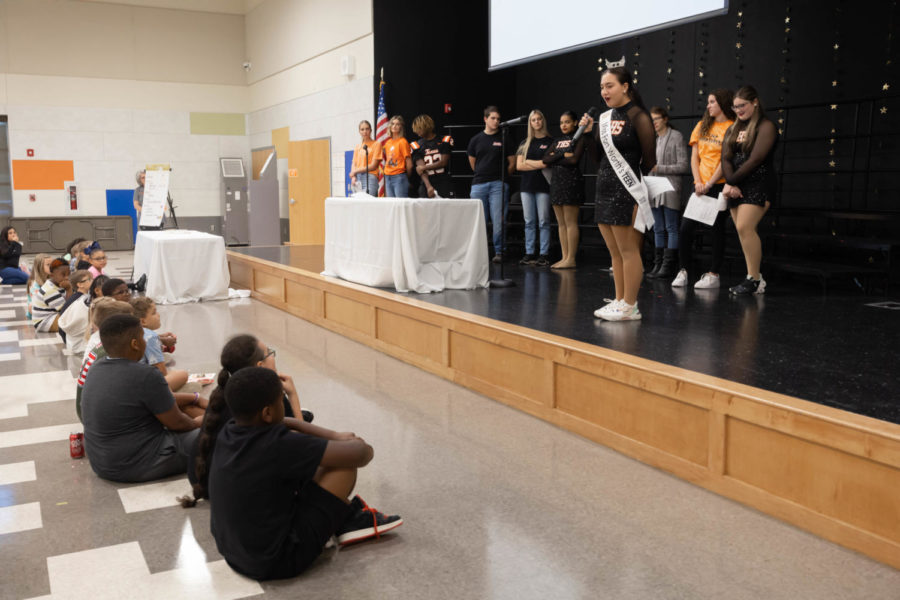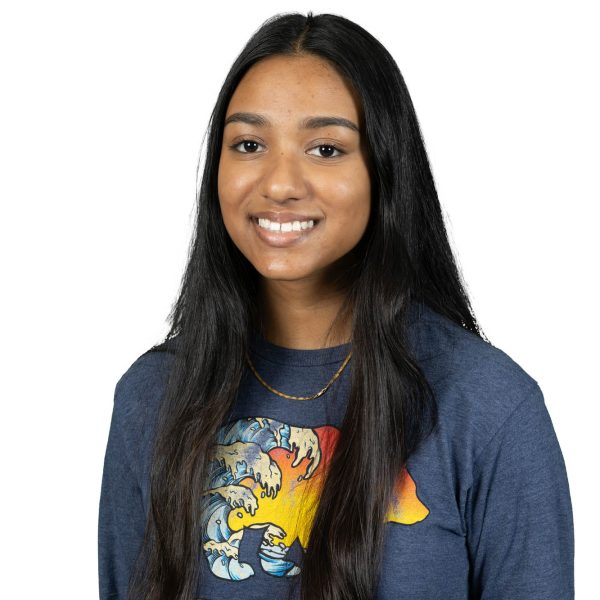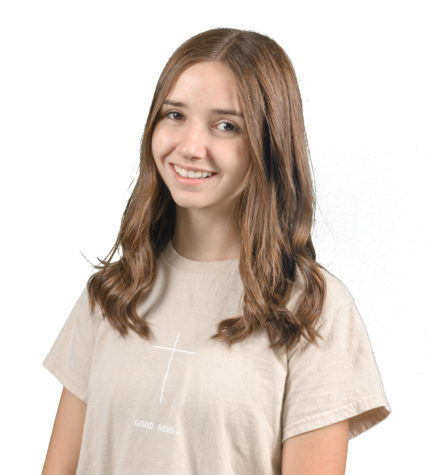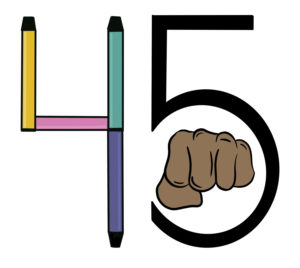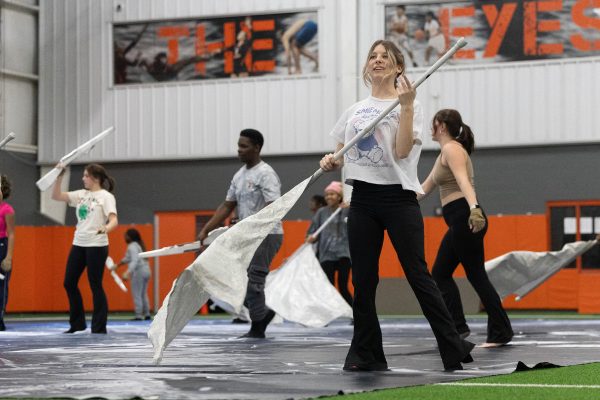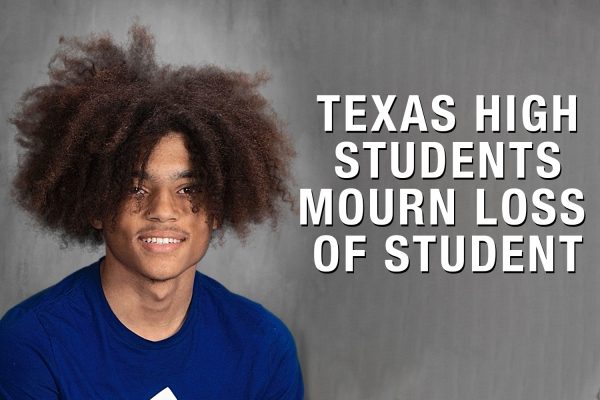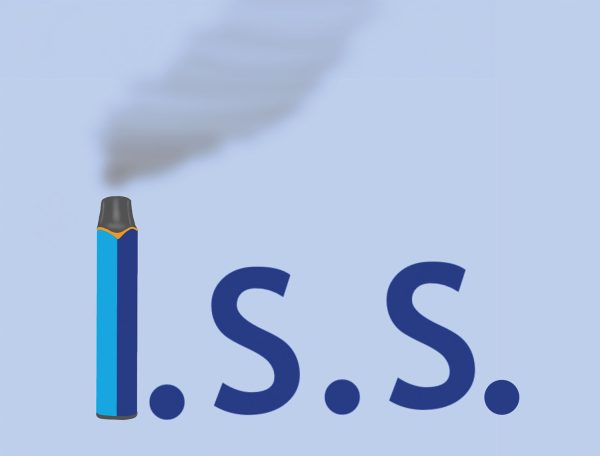Reaching out
Dyslexia ambassadors share their struggles and answer questions at dyslexia awareness event
Students from Waggoner Creek Elementary School watch as Dyslexia Ambassadors from Texas High share their experiences with dyslexia.
October 6, 2022
Young kids sit in front of the stage, listening closely as 11 high school students share their stories, letting the kids know that they are not alone. In the back, concerned parents feel a sense of relief, finally understanding what their kid is going through and knowing they have someone to guide them.
On Oct. 4, Dyslexia Ambassadors from Texas High spoke at the annual Dyslexia Awareness event hosted by TISD at Waggoner Creek Elementary School. They shared their experience with dyslexia and answered questions.
“The Dyslexia Ambassadors presented their personal stories about living with dyslexia to parents, students, teachers, administrators and people from the community,” sponsor of the Dyslexia Ambassador program Leslie Mulkey said. “They did a wonderful job of sharing about when they were identified with dyslexia, some of the struggles they have dealt with and continue to deal with, using accommodations and working hard. The students then answered several questions from the audience.”
The program is a fairly new addition to the district. It was an idea initially proposed and planned by Stacy Salisbury and carried out by Mulkey this year. The goal was to let younger dyslexic students feel confident with themselves.
“I followed in the footsteps of Salisbury, who was a part-time dyslexia teacher and monitor for the past few years at TISD,” Mulkey said. “She wanted the dyslexia students to practice being advocates for themselves and dyslexia. She thought they could possibly inspire or help our younger dyslexia students navigate what being dyslexic is like and how it would not hold them back from achieving or participating in any of the many programs Texas High has to offer.”
There are a lot of requirements that have to be met to become an ambassador. Students are chosen based on their dedication to academics and comfort with public speaking.
I am also responsible for sharing . . . with newly diagnosed kids that they are not alone. — Bella Fuqua
“The parameters were decided by Mrs. Salisbury and Mrs. Campbell. The ambassadors are chosen to join if they have good grades, no behavior issues and make efforts beyond what is required in their classes,” Mulkey said. “They are also chosen to boost their confidence and learn to advocate for themselves and dyslexia. They have to be willing to speak in front of others about their personal story and how it feels to have dyslexia on a daily basis.”Along with sharing their experiences of having dyslexia and giving tips on how to overcome it, ambassadors scope out students who they feel would be willing to share their story.
“I am responsible for gathering other successful dyslexic students who are passionate about their story and are willing to share their experience with others,” senior Bella Fuqua said. “I am also responsible for sharing my story of what I’ve been through, things that have helped me overcome my disadvantages and share with newly diagnosed kids that they are not alone.”
Ambassadors hope to be the person for the kids that they wished they had when they were trying to figure out how to overcome their difficulties.
“Being an ambassador is important to me because I can share my story with a younger generation that might need to hear it. When I was in second grade, I hated school so much I would make myself throw up everyday so I could leave, and I know if I had someone to talk to about my struggle in school, I would have been much better off,” Fuqua said. “Sharing my story and sharing what got me through the years of extra hard work makes a difference, and that’s why I love the ambassador role.”
The program has many plans for the future, and hopes to continue inspiring young kids.
“We would like to continue to visit the elementary campuses and mentor the younger students,” Mulkey said. “We want to add Texas Middle School to the list so middle schoolers can be inspired too. All dyslexia students need to hear they are not alone and there is light at the end of the tunnel.”


